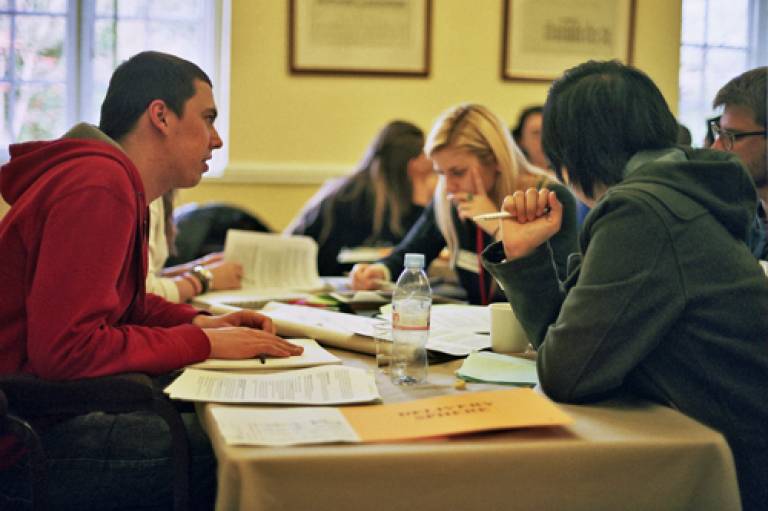How can we use assessment and feedback differently?
Rose Crowley (iBSc Paediatrics) and Daven Armoogum (Physics and Astronomy) offer examples of alternatives to the traditional assessment and feedback procedure.

16 April 2015
Use of peer feedback to enhance medical students’ reflective writing
Rose Crowley discusses reflective writing.
“Reflective writing is a well-established strategy in medical education to promote deep learning and encourage self-awareness.
Reflection involves understanding others’ viewpoints as well as one’s own and well-conducted feedback can enhance this.
Peer feedback on reflection is relatively well established in teacher training but has not been significantly evaluated in health professionals’ training, despite peers potentially offering a different perspective to faculty.
Investigating the impact of reflective writing
We wanted to establish whether medical students gain any additional learning from peer feedback rather than faculty feedback on reflective writing.
To determine the benefits and challenges when students mark a peer’s reflective work and give written or verbal feedback.
Seventeen UCL iBSc Paediatrics students anonymously marked a peer’s reflective writing assignment using the same markscheme as faculty markers.
Each student completed a questionnaire on how useful they found the experience of reading another student’s work, how valuable they found the marks and comments received from their peer and faculty assessors and their experience of offering verbal feedback in a reflective group.
Students were extremely positive about the experience of peer marking, with many commenting that reading another student’s work made them re-evaluate their own submission.
There was no significant difference between peer and faculty marks and students highlighted benefits from each type of feedback.
Students gain both from assessing their fellow students’ work and from receiving peer feedback.
The impact of this programme on future reflective assignments and the utility and acceptability of written and verbal peer feedback in other disciplines merit further exploration."
'Live marking': demystifying assessment and encouraging dialogue
Daven Armoogum talks about a project he undertook to improve students’ understanding of assessment.
"The effectiveness of feedback has been identified by successive NSS results as an area for improvement.
By submitting coursework, students are removed from their work at the point of assessment; this separation can lead to discrepancies between staff and student regarding the meaning of the feedback, which may reduce its effectiveness.
Trialing live online feedback
A new approach to quasi-formative assessment of practical work has been trialled in the Physics & Astronomy teaching laboratories for second year undergraduates.
In this trial, teaching staff used tablet PCs to provide face-to-face “live marking” of coursework with each student in the teaching laboratory.
In an anonymous poll, 81% of students agreed that the “live marking” trial had improved their understanding of the marking process, and 86% of students agreed that the “live marking” should be retained for future years.
This approach encourages student-staff interaction and introduces students to the concept of dialogue in assessment. The “added value” is analogous to a new researcher benefitting from dialogue with a more experienced colleague or journal referee; this sits favourably with UCL’s Connected Curriculum initiative.”
 Close
Close

